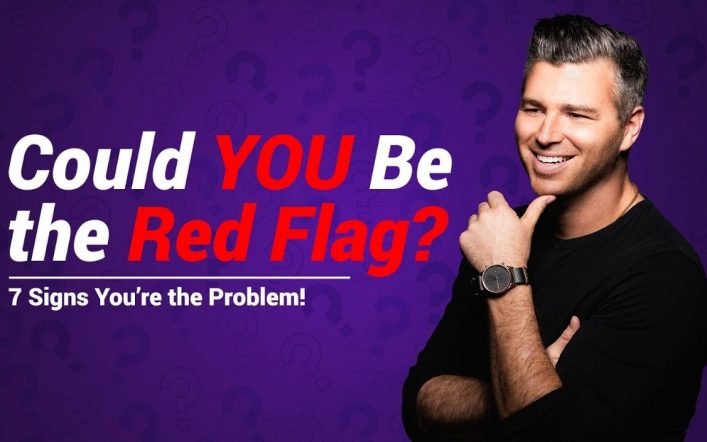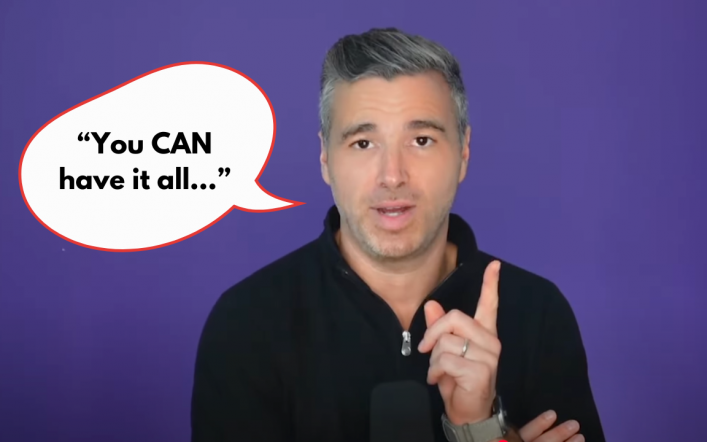When Ought to I Count on Him To Say “I Love You”?

Notes from the podcast:
Navigating the “I Love You” Milestone in Relationships
At this time, we’re addressing one of many greatest milestones in any new relationship and one among our purchasers’ most typical considerations: “He hasn’t stated ‘I like you’.”
There’s loads wrapped up in these three little phrases. When a shopper asks why their associate hasn’t stated “I like you,” what they’re actually questioning is:
-Is that this man for actual?
-Will he ever love me?
-Am I lovable?
-Am I going to get my coronary heart damaged?
At this time, we’ll focus on once you hope he says it and once you hope he doesn’t. We’ll discover why it’d really feel prefer it’s taking too lengthy, why that may be each good and dangerous, the errors individuals make, and the 2 issues we all know are completely true about saying “I like you.”
Timing is All the things
Statistic: Analysis signifies that males sometimes say “I like you” about 107 days, or three and a half months, into a brand new relationship. Girls, on common, say it after 122 days.
Saying It Too Quickly (Positively Problematic)
-It could possibly be an indication of affection bombing, anxious attachment, or his common neediness.
-Accelerating Bodily Intimacy: Some guys use an early “I like you” to hurry up bodily intimacy.
CAUTION: The extra you yearn for the “I like you,” the extra inclined you might be to a
disingenuous or pretend “I like you.”
-An Exception: It was a slip, one thing stated out of behavior (e.g., “That’s cute, I like you”).
Saying It Too Late (May Go Both Means)
-Unhealthy: It would point out avoidant attachment or disinterest, as he could create area to keep away from getting harm.
-Good: He’s being intentional and ready. For instance, one shopper’s associate waited six months earlier than saying it to make sure the phrases have been actually significant.
Two Large Errors
1. Hanging on Half Phrases (Don’t Obsess)
-Going into full “Love Detection” mode over phrases like “I’m falling for you,” “Love ya,” “Goodnight, my love,” or “You’re so lovable” usually means studying into issues that seemingly don’t have deep significance. These phrases may imply nothing or no matter you persuade your self they do.
2. Don’t Power It
-Asking, begging, guilting, or baiting him to say it isn’t efficient. Even when he says it, you’ll be left questioning if he meant it or simply stated it to appease you.
Right here’s the Fact
Fact #1: Saying It Doesn’t Matter
-Most individuals don’t keep in mind who first stated “I like you” or when it was stated.
-The actual problem shouldn’t be saying the phrases however that means them and displaying them by way of actions. Listed here are just a few examples:
Editor’s word: Prepared to draw love with a confirmed technique? Watch this free video to study the 7 highly effective steps
-Reminding you to put on your seatbelt or to not textual content whereas driving.
-Figuring out how you’re taking your espresso or your favourite ice cream taste.
-Bringing you snacks once you’re unhappy or have had a tricky day.
-Beginning your automotive when it’s chilly, making your favourite meal, shocking you with a word or flowers, or warming up your aspect of the mattress earlier than you get in.
Fact #2: It’s the Improper Query
-Asking “When will he say ‘I like you’?” is actually asking, “Does he love me?” Whereas it’s a sound concern, it may be a needy query.
-A greater query is, “How do you’re feeling about him?” Impartial of the way you assume he feels, assess your individual emotions and why you’re feeling that method.
-The important thing lesson is to place your individual emotions first. Don’t really feel obligated to like somebody simply because they love you, and don’t love somebody out of concern of wounding them should you don’t.
Conclusion
Saying “I like you” is a major milestone, however it’s the that means and actions behind these phrases that actually matter. Focus by yourself emotions and the standard of the connection somewhat than fixating on when these three phrases are stated. This method results in a more healthy and extra real connection.





